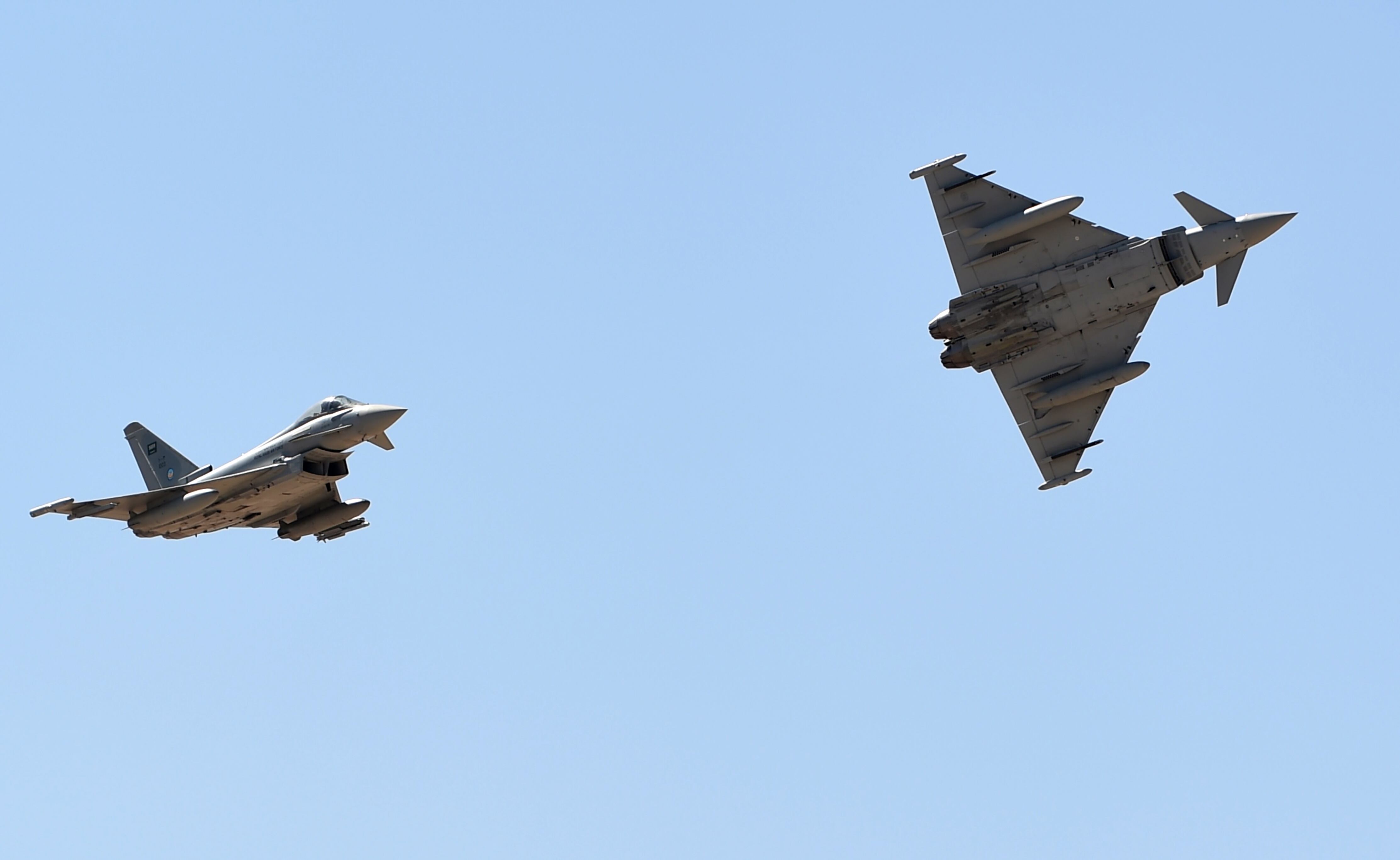PARIS ― There is an urgent need to find ways for Britain to participate in future European defense programs after London leaves the European Union, or face a big loss for the arms industry, the CEO of missile-maker MBDA said Tuesday.
The U.K. and EU members should find “instruments of convergence” to allow cross-English Channel industrial cooperation following the divorce from the EU and the transition period, Antoine Bouvier told the French association for aeronautics and space journalists.
That search for a convergence mechanism “will take time and calls for work today,” or there will be “a loss of the British contribution and the critical mass for Europe,” Bouvier said. It would be “extremely negative” for Britain and the other 27 EU members if cooperation opportunities are cut off.
The 28 EU members, including the U.K., hold 20 percent of the world market for missiles, while 27 members (without the U.K.) would account for 16 percent, he said. That British exit meant EU members would lose in terms of finance, technology, staff, expertise, and a country with a history of being “able and willing” to deploy outside Europe, the executive asserted.
In the short term, there is little risk for MBDA, as there is a strong flow in program cooperation between Britain, France, Germany and Italy, he said. The group expects Spain to join the league of prime contractors if and when a Spanish order is booked.
But in the long term, there is risk that “gradually, over the years, there could be weakening ties of the security interests of the 27 members and those of Britain,” he said. The U.K., once outside the EU, “would tend to look across the Atlantic, and the 27 [members] would tend to work more closely together.”
The second long-term risk lies in Britain’s exclusion from the “community initiatives of the 27, and the Europe of 27 would not benefit from British capability, resources and technology.”
“You could not imagine Meteor without Britain,” he said. The Meteor missile is a symbol of European defense cooperation.
The U.K. has led the program on the long-range, air-to-air missile, which is backed by Britain, France, Germany, Italy, Spain and Sweden. The missile arms the Dassault Rafale, the Eurofighter Typhoon and Saab’s Gripen, all of which compete with each other in export markets.
On Qatar’s planned order for 24 Eurofighters, it was too early to say which weapons the Qatari Air Force would pick, but there will be a “commonality” of weapons for the Rafale and Eurofighter, he said. The procurement details are up for discussion.
RELATED

One of the projects for European cooperation is a long-range version of the French MMP anti-tank missile, which will be pitched to arm the planned Franco-German Airbus Tiger Mk3 attack helicopter, he said.
That would lead to a “reconvergence” with a common helicopter and missile for the French and German forces, which fly different Tiger versions, armed respectively with the Hellfire and PARS 3 missiles, he said. Spanish Tigers are equipped with the Spike missile.
The MMP, which replaces the Milan weapon, is due to enter service with the French Army in the next few weeks, he said. The MMP might also arm the French Reaper drone. France will arm its General Atomics UAV with the Hellfire missile, and the country is studying arming the drone with a European weapon at a later stage.
Tests have been conducted in the U.S. for fitting the Brimstone air-to-ground missile on the Reaper, a significant move for the British, he said.
The MBDA executive noted that the announcement at the July 14 Franco-German summit in Paris of a study for a future fighter jet to replace the Rafale and Eurofighter was “not a negative message to the British” ― large defense programs need cooperation between nations such as Britain, France, Germany, Italy and Spain, as these nations bring resources, capability, sales and operational capacity.
There is likely to to be an Anglo-French summit later this year or early next year, and the situation will be clarified, he said.
Poland presents a medium- and long-term outlook for business, after Warsaw picking the Patriot missile, he said. That sales perspective may be boosted if Poland signs up for the permanent-structured cooperation, a complex European defense plan which has lain largely dormant since being drawn up in 2009, he said. That agreement includes industrial cooperation, and MBDA is keen to see which Central and East European countries sign up.
There is also Poland’s tender for attack submarines, with Naval Group offering the Scorpene armed with an MBDA naval cruise missile, he said. For the rival German offer of the Tomahawk missile, it is up to U.S. authorities to authorize that and see if the German shipbuilder can fit the weapon.
ThyssenKrupp Marine Systems is the favored candidate in the Polish competition, business website La Tribune reported.
MBDA is jointly owned by BAE Systems and Airbus, each holding 37.5 percent, and Leonardo, which holds 25 percent.








